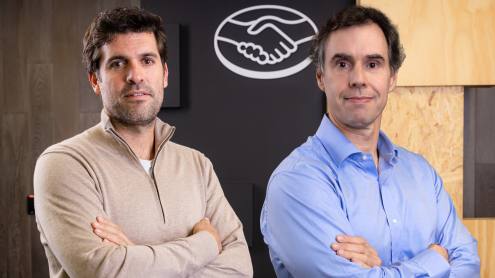In ING Group, several outsourcing initiatives are pending. This is part of its strategy of continually looking for ways to reduce costs and improve efficiency to preserve its competitive position. The outsourcing of application management is a prime example of the strategic role outsourcing is taking on in global financial institutions.
ING Group is a global financial institution of Dutch origin with 150 years of experience, offering banking, insurance and asset management to more than 60 million private, corporate and institutional clients in more than 50 countries. It is one of the 20 largest financial institutions worldwide and is ranked in the top 10 in Europe.
Key to ING’s success is the importance it attaches to customer satisfaction and customer service. However, ING recognises that customer satisfaction alone is not enough to remain competitive in its markets. Intense competition in its target markets has made it essential for ING to control costs and improve efficiency.
To focus on its business fundamentals, ING’s Application Delivery unit for the savings product line recently entered into a five-year outsourcing agreement with Fidelity to provide application support and development services for ING Netherlands’ savings products. In addition to the primary objective of cost containment and cost reduction, ING was looking for an outsourcing model that would provide flexibility, shorter-time-to-market for new products and initiatives, and continuity of skills and resources.
“We were looking for an outsourcing partner with insight into our business goals and a keen understanding of the dynamic Dutch banking market. We wanted the outsourcing vendor to be able to provide the product functionality, operational requirements and rapid response essential to continually meet the bank’s needs,” says Leon van de Kerkhof, head of Application Delivery Savings.
“We selected Fidelity National Information Services, with more than 35 years of experience in outsourcing. Our partnership with Fidelity allows us to draw on a wealth of resources and capability.”
Smartsourcing
Through the outsourcing model with Fidelity, it is possible to utilise a number of onshore/offshore capabilities, which reflect ING’s experience that industry expertise and flexibility are key ingredients to a successful outsourcing agreement. A dedicated team at Fidelity provides application management for several Unix and mainframe-based savings applications.
Fixed services include traditional application management maintenance and support activities, such as incident management, change management and annual application reviews. Onshore technical analysts from ING have responsibility for incident management and problem management activities, and act as the technical contact for the offshore associated teams.
This model has allowed transition time and cost to be minimised. It was critical to ING that there would be minimal impact on the business during transition, with no business stop and negligible transition risk. ING and Fidelity utilised a phased approach to seamlessly transfer knowledge, artefacts, systems and support systems to Fidelity, with quantifiable milestones to facilitate measurement.
An essential transition activity has been the completion of a full set of documentation for the outsourced applications. This provides the base-line for application rationalisation and technical improvements once transition is completed and the “steady state” is reached.
Room to add capacity
The model includes a pre-agreed framework to add team capacity to provide a range of consulting services, such as supplementary project and resource needs. As part of delivering a project service to ING, the Fidelity outsource team takes full responsibility for application development and project management under the direction of an ING project manager.
Onshore solution architects have an overall understanding of the various applications and their interfaces, providing analysis and preparation of functional and technical design specification documents for completion by the offshore Fidelity team. Offshore testing activities will primarily be executed by Fidelity, while onshore test co-ordinators will interact with the bank.
This allows ING to deliver new projects efficiently with pre-negotiated resource costs and ready access to specialised resources. Even during the transition period, the bank has been able to react quickly to changing priorities. ING remains in full control and can reassign projects and resources as required to meet business objectives.
It was not enough for ING to enter into an outsourcing contract and just hand off to the outsourcer. Understanding that any outsourcing agreement involves a multi-year engagement, during the process of selecting potential suppliers, ING looked not only at various business criteria such as quality, continuity, and growth strategy, but also at social aspects, such as working conditions, and how the potential partner’s business culture fitted with its own.
Fidelity and ING have implemented an outsourcing governance structure that provides a single point of accountability with the outsourcer, basing a Fidelity delivery executive in Amsterdam who has responsibility for the entire scope of activities. ING has assigned a dedicated executive to head its engagement team. This active involvement gives ING control of the quality of service it delivers to its business partners, such as Postbank and ING Bank.
Vision and strategy
According to Mr van de Kerkhof: “Our engagement model ensures that our outsourcing partner, Fidelity, has a good understanding of ING’s vision and strategy on the savings product line. A good working partnership with our outsourcers, which is constantly adjusted over time, is how we keep our outsourcing agreements aligned with our changing business strategies.”
Sheila McCartney, Fidelity’s ING Service Delivery director, adds: “ING takes the partnership with Fidelity very seriously, considering it more than just a vendor relationship. Being onsite with the client has allowed us to work with ING as a team to deliver the bank’s business goals, which has contributed to a successful and productive working relationship.”
Delivering results
Open communication at all levels is a critical factor in the overall outsourcing governance, but equally important are the more formal structures such as metrics for measuring continual cost reduction and ongoing process improvement. As part of due diligence during vendor selection, ING focused on making certain the outsourcing arrangement would deliver a continuous improvement programme to ensure that services remained resilient. Often in production maintenance engagements, much of the teams’ efforts are focused on corrective maintenance with little attention being paid to preventive maintenance.
The Fidelity application management team is tasked with regularly looking for ways to improve the quality of the applications by restructuring programmes, extracting business rules, improving documentation, and other application optimisation activities. The objective of these efforts is to improve the maintainability of the application, increase responsiveness of the team to ING requests, and reduce the cost of maintenance over time.
Through the systematic elimination of root cause problems, the team reduces the need for future fixes and other corrective maintenance. This approach to service levels not only delivers expected operational results, but also provides metrics to ensure that the outsourcer is delivering the desired business outcomes through increased performance and ongoing improvements in quality of service.
Mr van de Kerkhof summarises the value of this outsourcing arrangement for ING Group: “We see this outsourcing agreement as a way for ING to strengthen our competitive position and deliver results to our stakeholders. Reducing our fixed costs will give us greater flexibility to adapt to changing market conditions, as well as more budgetary scope for developing new and innovative products.
“We will be able to respond more swiftly to constantly changing customer demands by fast-tracking the introduction of new products, and further automating our processes to improve customer service. And satisfied customers buy more products.”






